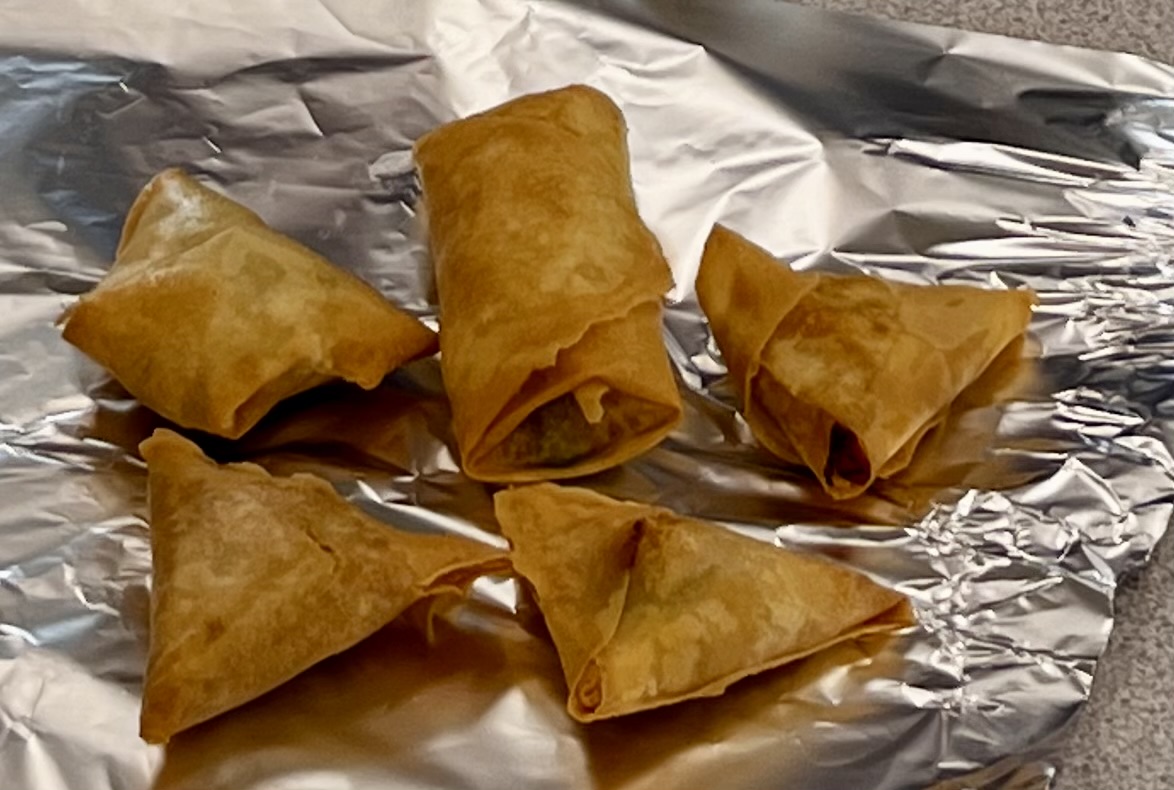After School Creative Cookery Club - International Carrot Day
24 March 2023
.jpeg)
Last night, pupils in Year 8 & Year 9 had the chance join Mrs Cowell in the Food Technology room for some after school creative cookery.
Did you know there was such a thing as 'International Carrot Day'? Well, there is, and it is observed whilst we're on our Easter holidays. To celebrate, Mrs Cowell was joined by Mrs Qadri where they showcased - you guessed it, carrots!
As it was the start of Ramadan this week, Mrs Qadri taught pupils how to make vegetable samosas whilst Mrs Cowell provided instruction on preparing roasted carrot hummus.
Mrs Cowell said, "All pupils had the opportunity to make their samosas from scratch with fresh ingredients of potatoes, carrots, peas and onions. Mrs Qadri provided all her own spices from home and gave a masterclass in samosa folding and everyone had a go.
"We also celebrated the carrot by making a roasted carrot hummus, which they tasted at the session and most found absolutely yummy! The Food Tech room smelt amazing after the samosas were cooked. It was a real cultural exploration last night!"
Well done - Emma H, Junaid Q, Layla H, Rhea B, Tilly P, Phoebe W, Emily P, Seth L, Abbie S, Ruby T, Molly T, Kaycee M, Tasha C, Aisha W
International Carrot Day - What's it all about?
The International Carrot Day was founded in 2003 to spread knowledge about the carrot and its good attributes around the world.
It is celebrated every year on 4th April and is the one day of the year when carrot lovers all over the world show their appreciation for this unique conical orange vegetable. In previous years, some people have celebrated with carrot parties.
Do they really help you to see in the dark?
Carrots are rich in the compound beta carotene, which your body uses to make a form of Vitamin A that helps your eyes adjust in the dark. Carrots can improve your vision at night, but won’t help you to see in complete darkness.
The myth about 'seeing in the dark' was propaganda used by the Royal Air Force during the Second World War to explain why British pilots had improved night vision which enabled their success during nighttime air battles.
Nevertheless, the consumption of carrots was advocated in Britain at the time as part of a Dig for Victory campaign.
A radio programme called The Kitchen Front encouraged people to grow, store and use carrots in various novel ways, including making carrot jam and Woolton pie, named after the Lord Woolton, the Minister for Food. The British public during WWII generally believed that eating carrots would help them see better at night and in 1942 there was a 100,000-ton surplus of carrots from the extra production.
.jpeg)
.jpeg)

Tags: Food Tech Extra Curricular Personal Development
